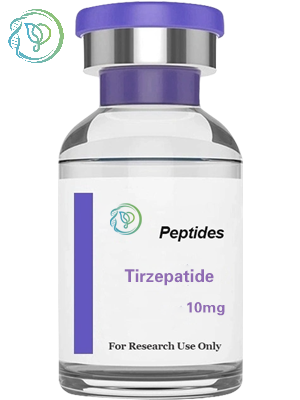Semaglutide not only helps you lose weight, but also improves cardiovascular health
What is the specific mechanism by which Semaglutide protects the heart?
Semaglutide is a glucagon like peptide-1 receptor agonist (GLP-1RA), and its cardioprotective mechanism is mainly achieved through the following aspects:
Lowering blood sugar levels: Semaglutide reduces blood sugar levels by increasing insulin secretion, simulating the hormone associated with appetite regulation – glucagon like peptide-1 (GLP-1). This is particularly important for patients with diabetes, because hyperglycemia is an important risk factor for cardiovascular disease.
Weight loss and improved metabolism: Semaglutide not only significantly lowers blood sugar, but also helps with weight loss and improves lipid levels, which are important risk factors for cardiovascular disease. Weight loss can directly improve blood pressure and cholesterol levels, thereby reducing the risk of cardiovascular events.
Myocardial protection: In animal experiments, semaglutide has a protective effect on myocardial damage in streptozotocin induced diabetes cardiomyopathy rats. This suggests that smeglutide may exert its effects by protecting myocardial cells and reducing heart damage.
Improving heart failure: In heart failure (HF), semaglutide increases energy production and reduces cardiac burden by improving mitochondrial function and reducing glycolysis. In addition, Semaglutide may also target the reduction of pericardial fat upstream of the pathological and physiological process of heart failure, thereby improving cardiac structure and function.
Prevention of cardiac remodeling and dysfunction: the study found that the use of metformin combined with semaglutide in patients with type 2 diabetes can prevent cardiac remodeling and dysfunction.
Clinical evidence supports: multiple clinical trials and real world studies have confirmed that semaglutide has a protective effect on cardiovascular, can significantly reduce the end cardiovascular events, and ultimately effectively improve the long-term outcome of diabetes patients. What is the detailed basis for FDA approval of simagliptin for the treatment of cardiovascular disease?
What is the detailed basis for FDA approval of simagliptin for the treatment of cardiovascular disease?
The detailed basis for the approval of Wegovy for the treatment of cardiovascular disease by the US Food and Drug Administration (FDA) is mainly based on the following points:
Indications: The FDA has approved a new indication for Semaglutide to reduce the risk of major adverse cardiovascular events in adults with known cardiovascular diseases who are overweight or obese. These adverse cardiovascular events include cardiovascular death, non fatal myocardial infarction, or non fatal stroke.
Research results: According to the detailed research results released by Novo Nordisk in November last year, patients treated with injection of semaglutide had a 20% lower risk of heart attack, stroke, and death from cardiovascular disease.
Combination therapy recommendation: The FDA recommends using semaglutide in combination with a low calorie diet and increased exercise to achieve optimal results.
First cardiovascular indication: This marks Semaglutide as the first FDA approved drug to assist adults with cardiovascular disease, obesity, or overweight with cardiovascular disease indications. What long-term studies support the effect of semaglutide in reducing the risk of cardiovascular events?
What long-term studies support the effect of semaglutide in reducing the risk of cardiovascular events?
There are several long-term studies supporting the effect of simagliptin in reducing the risk of cardiovascular events:
SUSTAIN 6 Study: This is a cardiovascular outcome trial (CVOT) with cardiovascular outcomes as the primary endpoint, aimed at demonstrating the cardiovascular safety of simagliptin. In the SUSTAIN 6 study, semaglutide significantly reduced the risk of major cardiovascular adverse events (MACE) by 26% compared to placebo, driven by a reduction in the risk of non fatal stroke (relative risk reduction of 39%).
SELECT clinical phase 3 trial: this trial shows that subcutaneous injection of 2.4 mg semaglutide once a week can reduce the risk of major adverse cardiovascular events in overweight or obese adults by 20% (the patient has no history of diabetes). In addition, the effect of reducing the risk of MACE emerged shortly after the start of treatment, indicating that cardiovascular effects are not just a side effect of weight loss.
FLOW study: This is a renal outcome trial, and the results showed that compared to the placebo group, patients in the Semaglutide group had a 24% reduction in renal disease progression and cardiovascular and renal mortality risk, achieving the efficacy endpoint. The study was recommended to be terminated early by the Independent Data Monitoring Committee on October 10, 2023 due to its outstanding therapeutic effect.
Other clinical studies: Some studies have shown that semaglutide performs well in terms of cardiovascular benefits, with an overall 15% reduction in cardiovascular risk, a 15% reduction in cardiovascular mortality risk, and a reduced risk of composite endpoints in heart failure.
What is the relationship between Semaglutide and weight loss and improving cardiovascular health?
Semaglutide is a glucagon like peptide-1 (GLP-1) receptor agonist with significant weight loss and cardiovascular health improvement effects. According to multiple studies and reports, Semaglutide has shown excellent performance in reducing hunger, reducing diet and calorie intake, thereby helping patients lose weight. In addition, Semaglutide has been shown to significantly reduce the risk of cardiovascular disease in overweight and obese patients.
Specifically, a report on March 11, 2024 stated that semaglutide has become the first weight loss drug approved to assist adults with cardiovascular disease, obesity, or overweight in preventing major cardiovascular events. This means that semaglutide is not only effective in weight loss, but also can prevent serious cardiovascular events without type 2 diabetes.
Further research results showed that patients treated with simagliptin also improved their symptoms of heart failure, with an average score increase of 16.6 points, while the placebo group only improved by 8.7 points. In addition, a study found that compared with placebo, weekly subcutaneous injection of semaglutide could significantly reduce the incidence of cardiovascular death, nonfatal myocardial infarction and nonfatal stroke in overweight or obese patients with confirmed cardiovascular disease but no diabetes.
Semaglutide has a close relationship between weight loss and improving cardiovascular health.
What are the specific findings of the research conducted by the Wuhan University team on the cardiovascular protective effect of semaglutide?
The research conducted by the Wuhan University team on the cardiovascular protective effect of smeglutide mainly includes the following aspects:
Improving cardiac function: Studies have shown that simagliptin can significantly improve cardiac function in a stress overload induced heart failure mouse model.
Reducing cardiac hypertrophy and fibrosis: Through observation of mouse models, studies have found that simagliptin can effectively reduce cardiac hypertrophy and fibrosis.
Optimizing energy metabolism pathways: Research has revealed that simagliptin optimizes energy metabolism pathways through the Creb5/NR4a1 axis, thereby exerting its cardiovascular protective effect.
In addition, other studies also support the potential of semaglutide in cardiovascular protection. For example, the study of sustain 6 has proved that smeglutide has significant benefits on cardiovascular outcomes of patients with type 2 diabetes, significantly reducing the risk of major cardiovascular adverse events by 26%, and significantly reducing the risk of non fatal stroke by 39%.






